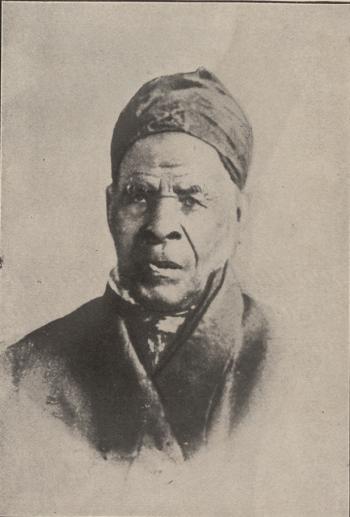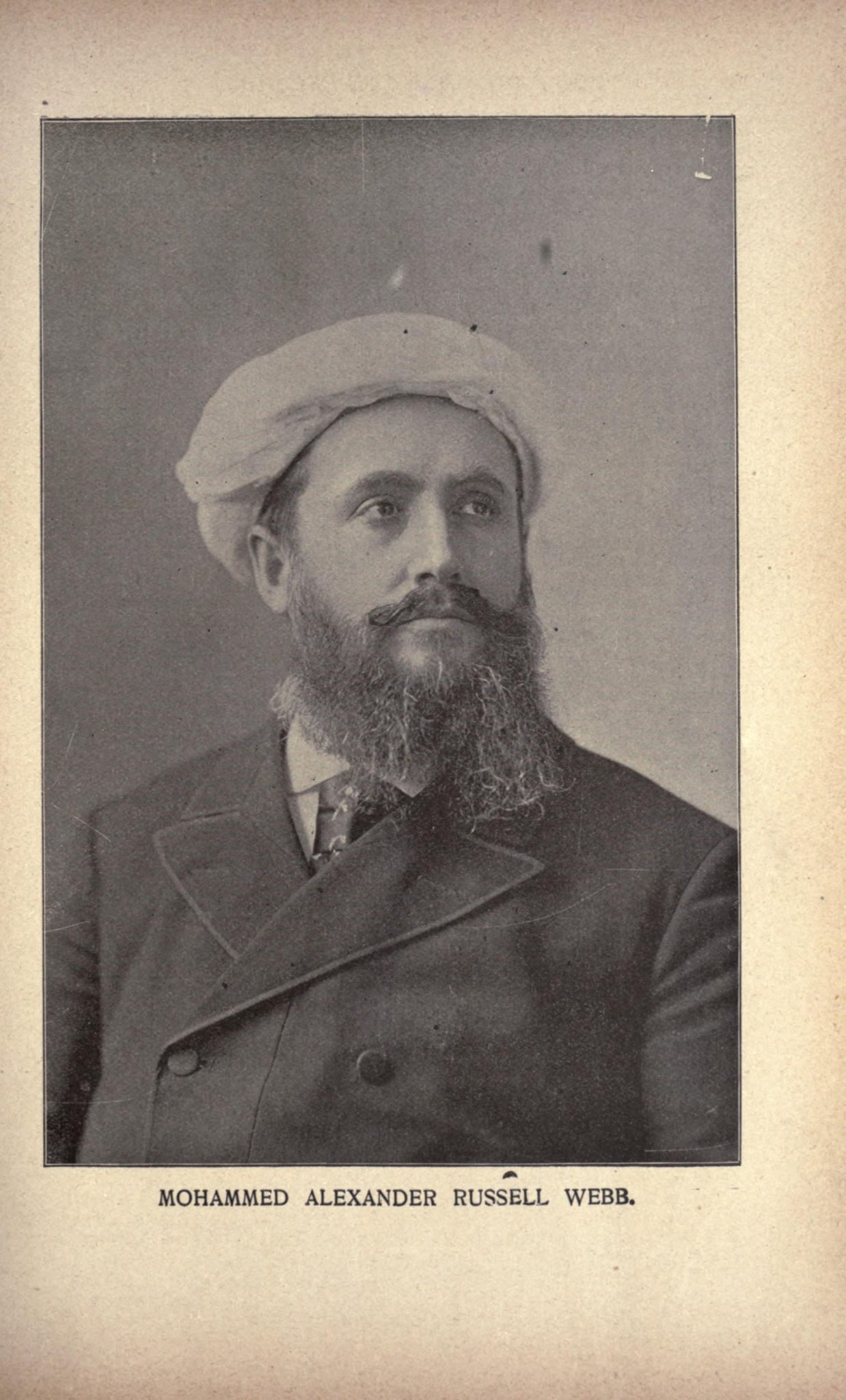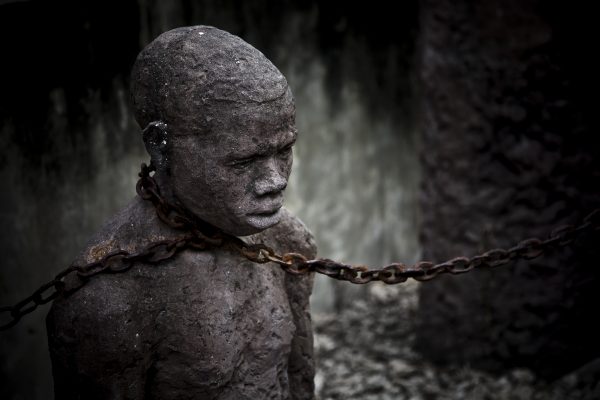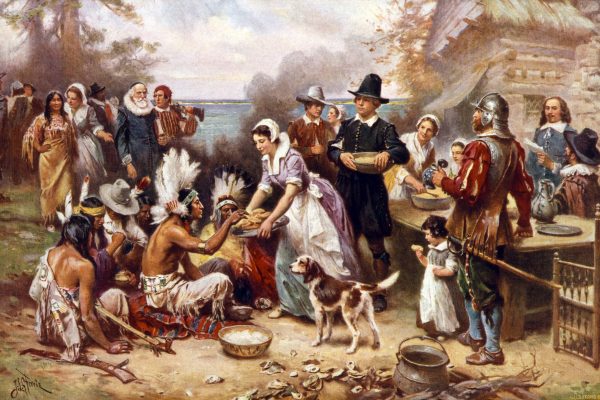Islam is as ‘American’ as baseball is
Islam is as ‘American’ as baseball is
Islam in America has a long and rich tradition that spans over three hundred and fifty years. Islam was a huge factor in foreign policy under Thomas Jefferson and John Adams. Jefferson and Adams both had to deal with Muslim pirates off the Barbary Coast and try to come to a conclusion on the role Islam had on the situation. Not only was Islam a factor in foreign policy but Islam was also a force domestically. Muslim slaves such as Omar ibn Said and Ibrahim Souri were local celebrities due to their Islamic knowledge. Muhammad Russell Webb is regarded to be the first White American Muslim convert and was a very outspoken figure of Islamic theology. As such, Islam as a personal religion, and a key factor in foreign policy is nothing new for Americans.
Jefferson and Adams
Thomas Jefferson purchased a copy of “The Alcoran of Mohammed” by George Sale in 1765. Although this edition of The Qur’an had many translation mistakes, such as literally being translated to “The Recitation of Muhammad,” this is the translation that Jefferson would use to inform himself on Islam.
On different occasions, Jefferson and Adamson met with the Tripoli Ambassador, Abd Al- Rahman in 1786 over the piracy issue on the coast of the Barbary States. Focusing on the fact that Jefferson purchased his Qur’an twenty-one years before his meeting with Al-Raham, Jefferson had time to write and produce ideas about Islam. Interestingly, Jefferson would place his initials by verses in the Qur’an dealing with warfare and fighting armed “jihad.”
Piracy and slavery
The issue of piracy off the coast of the Barbary States was an early foreign policy concern for the early United States government. Seemingly, America had the option to pay tribute to the pirates or take military action. Whilst Jefferson wanted to take military action, Adams wanted to pursue the route of paying tribute. Not only were there economic issues with the Barbary Coast pirates but there was also a more pressing concern regarding the Americans that were on these vessels.
The Americans that were taken captive by the pirates were indeed slaves by the American definition of slavery, but not as much as the Islamic definition of slavery. The captives of Barbary pirates had a glimmer of hope of being released through payment or conversion to Islam. Although Jefferson and Adams saw this as a form of slavery, it was very different from the form practiced in America during the same time period.
The evils of American slavery were brought to Jefferson’s attention by those close to him, including his daughter, Martha, who wrote to her father whilst traveling in the south of France. Martha Jefferson went on to explain how she wished nothing more than to see “the negro” free and how the Americans were treating “fellow creatures” with such cruelty. Jefferson was not entirely ignorant about Islam or the anti-slavery position, but it seems he simply ignored facts that undermined his interests.
John Adams was a staunch abolitionist, to the extent that he only hired white people as house servants. His views on why the Africans were enslaved were expressed in a letter to Marquis de Lafayette. Adams explained to Lafayette that enslaved Africans were simply war captives in civil wars and the “foundation of the misfortune of The Negro.” Although Adams believed slavery was an abomination, at the same time, he blamed the Africans for being enslaved. Adams and Jefferson would fail to make a peace treaty with the ambassador from Tripoli but one would eventually be signed in 1797 under Adam’s presidency.
Article 11 of the treaty stated that America was not founded as a Christian nation. Not only were they not a Christian nation but that it was not at odds with Muslim nations or Islam. It is noteworthy that Article 11 deals with America and Islam, not America and Tripoli.
Ibrahim Souri
While Jefferson and Adams were dealing with Barbary piracy and interacting with Muslim ambassadors, there were still many Muslims living in America as slaves. One of these slaves was sold to the British and brought to Mississippi in 1788 by the name of Ibrahim Souri. Souri received a traditional Muslim education in his home city of Timbuktu. Not only was he educated in Islamic jurisprudence, but he also spoke three languages.
Souri managed the plantation for his master for thirteen years, and even married a Christian woman. By chance, Souri would meet Dr Cox, a White traveller his father had found wandering Timbuktu in the 1780s. Dr Cox would try to buy the freedom of Souri and his family, but would fail. The campaign to free Souri made him a local celebrity. Souri would be interviewed in the local Mississippi newspaper in the 1820’s and even quoted a verse from The Qur’an for his interview.
This interview found it’s way to the United States department and eventually into the hands of Sultan Abd Al-Rahman II of Morocco. Rahman II offered to pay for the freedom of Rahman and it was thought that this was a softening of relations between America and the Barbary State of Morocco. Although Rahman II paid for the freedom of Souri, he was not allowed to remain free by terms of his freedom contract. His only option was to take the offer presented to him by the American Colonization Society and take a free ticket to Liberia in return for spreading the Gospels and promoting American Trade, a rather unethical deal to present to Souri, but one that he accepted nonetheless.
On their journey to Liberia, Souri and his wife would tour the Northeast of America. When asked to prove his Arabic literacy, he would write the Christian “Lord’s Prayer” in Arabic. Souri was actually writing the opening verse of The Qur’an Al-Fatiha and presenting as a Christian prayer. Upon seeing the shores of Liberia, Rahman publically began his Islamic prayers.
Omar ibn Said
Omar ibn Said is another West African Muslim who found himself caught in the Transatlantic Slave Trade. Said was born in 1770 and was a native of the Futo Turo region between the Senegal and Gambia rivers. Like Ibrahim Souri, Said was a Muslim scholar. Said was enslaved in Charleston, South Carolina and managed to escape to Fayetteville, North Carolina. Said was captured in Fayetteville and jailed where he wrote Arabic script on the jailhouse walls. Omar was purchased by General James Owen of Bladen County, only to be later transferred to the estate of his brother Governor John Owen.
Said openly admitted to converting to Christianity, and was even gifted an Arabic Bible by Francis Scott Key in 1822. Interestingly, Key was a member of the American Colonization Society, the same group that paid for Ibrahim Souri’s return to Africa. Said was also baptized into the Presbyterian Church ten years before he would write his biography. Although Said claimed to have converted to Christianity, many scholars who have reviewed his work question the sincerity of his conversion because of his autobiography.
 By examining Said’s autobiography, which is written in Arabic, many clues suggest that he still clung on to Islam. Also through his writings, Said reveals how he, a Muslim slave views Christians; Omar begins his autobiography by writing, from memory, The Sovereign, which was in fact Surah Mulk. It is interesting that Said chose The Sovereign as the opening for his biography, and not a Bible verse. What makes The Sovereign significant is its message: the second verse says “He who created life and death to test you as to which is best in deeds, And He is the Exalted in might and most Forgiving.”
By examining Said’s autobiography, which is written in Arabic, many clues suggest that he still clung on to Islam. Also through his writings, Said reveals how he, a Muslim slave views Christians; Omar begins his autobiography by writing, from memory, The Sovereign, which was in fact Surah Mulk. It is interesting that Said chose The Sovereign as the opening for his biography, and not a Bible verse. What makes The Sovereign significant is its message: the second verse says “He who created life and death to test you as to which is best in deeds, And He is the Exalted in might and most Forgiving.”
The chapter goes on to describe punishment for those who disbelieve and the reward for those who do believe. What is interesting is whom Omar labels as an unbeliever or kuffar. Omar’s first owner, Johnson, is labelled an unbeliever and someone “who did not fear Allah at all.” Omar describes Johnson as a weak and evil man who would force him to do hard labour work. Said then describes his two masters, The Owens, as Christians, or Nasrani in Arabic. Omar uses the word “unbeliever” not to describe someone’s religious affiliation, but his or her behaviour and actions.
Said describes The Owens as good people who fed him what they themselves ate. He even gives The Owens a Qur’anic like introduction by saying, “O people of North Carolina, O, people of South Carolina, O, people of America, all of you: are there among you men as good and John and Jim Owen?” Said labels the children of The Owens as a good generation. Ten years after Said’s conversation, he was still using Islamic phrases such as “O, people.”
Practicing Islam
Omar ibn Said and Ibrahim Souri are individual examples of Muslims in slavery, but there was also plenty of communal Islamic practice in America during slavery; 15-20 per cent of the Africans captured in the Transatlantic Slave Trade were Muslims. This percentage of people found themselves scattered in different areas, including the Sea Island of the coast of Georgia. This island was worked by a mixture of Muslim and non-Muslim slaves and was too hot for the White slave owners to live in year round.
Muslims were free to practice aspects of Islam including, sadaqa, or optional charity; they would give out rice cakes to those who did not have enough food and on Fridays, the Muslim congregational day, the rice cake output doubled. Muslim slaves still found a way to give charity and practice their faith. The isolation of The Sea Islands helped preserve this Islamic tradition within America.
Slavery in Christian America was vastly different to that practiced by Muslim Arabs during the time. Slavery in America was based on race, not religion, which is the opposite of Islamic theology. Islam places captives and slavery into two different categories theologically. Americans captured by the Muslim pirates could be ransomed and some even held jobs such as James Cathcart. Cathcart would rise from being a captive, to a clerk for a Muslim official. Cathcart even negotiated his release and returned to America in a ship that he purchased. In contrast to this, with slavery in America, Blacks were not only enslaved, but were regarded as property.
Alexander Russel Webb
The turn of the century brought a change in American Islam. By 1893, a European American would openly embrace Islam and spread its message through the country. Alexander Russell Webb is widely known as the first European American convert to Islam. Webb was not only a convert, but he also toured the States and preached the message of Islam. Webb is also unique, in the fact that his writings explain his relationship to Christianity, Islam and America.
The relationship between Muslims and Christians, especially Christian theology in America during the late 19th century, was taboo, as Webb explains in his writings. Webb writes that the story of the Immaculate Conception failed to arouse emotions in him because he doubted the truth of the dogma. Webb makes it a point to tell his readers that his conversion to Islam was not impulsive, but one of unprejudiced study and honesty.
According to Webb, The Bible was an abused book that Christians look for logic in. Webb, a native of Hudson, Missouri, was no stranger to The Bible or Christian theology; Hudson was home to Presbyterians, Methodists, Lutherans and Baptists. According to Webb, the only way to get a true understand of religion is to study religions and to question one’s beliefs. And this is exactly what Webb did when he was named American consul to the Philippines. While in the Philippines, Webb encountered a Muslim merchant from Bombay, who began to teach him Islamic theology. Webb’s international popularity began to grow because the letters he wrote to the merchant were being published in Indian newspapers.
The New York Times and Christianity
Webb would take his newfound fame and religion back to America and take his career to new plateau. Upon returning to America, Webb published a number of mission journals and even a monthly publication called The Moslem World. The New York Times would label Moslem World a publication that praises Islam and explains why Islam is preferable over Christianity.
Indeed, it was Webb’s knowledge of American culture and America’s version of Christianity that made him popular enough to be mentioned in the New York Times. Webb often drew parallels between Jesus and Muhammad, to appeal to his American audience. Webb drew on a comparison, that both Jesus and Muhammad were rejected by their communities and enraged the elite class of their time. He would also rely on the comparison that both Jesus and Muhammad rejected the “worldly life” and lived a life of poverty and charity.
Islam is much a part of America as any other ideology or religion. Enslaved Muslims worked plantations while also sharing their story through autobiographies. Islam flourished independently for decades as African Americans looked to cling to their Islamic heritage. When Islam touched Christian Americans, it did so by reaching the pages of The New York Times. Islam is looked upon as an Eastern Religion but Islam is as American as baseball is. It has morphed and fused itself with American life.





